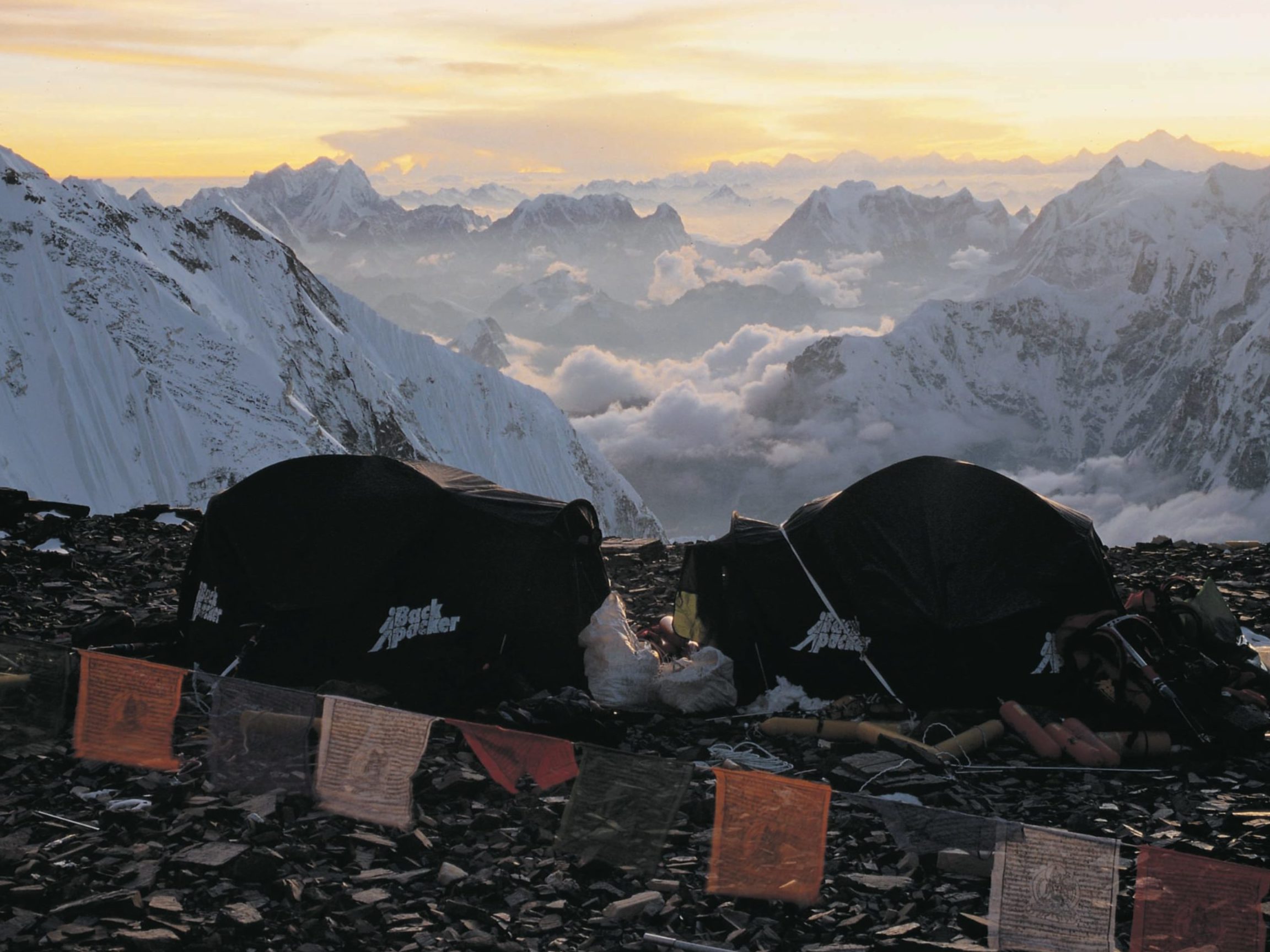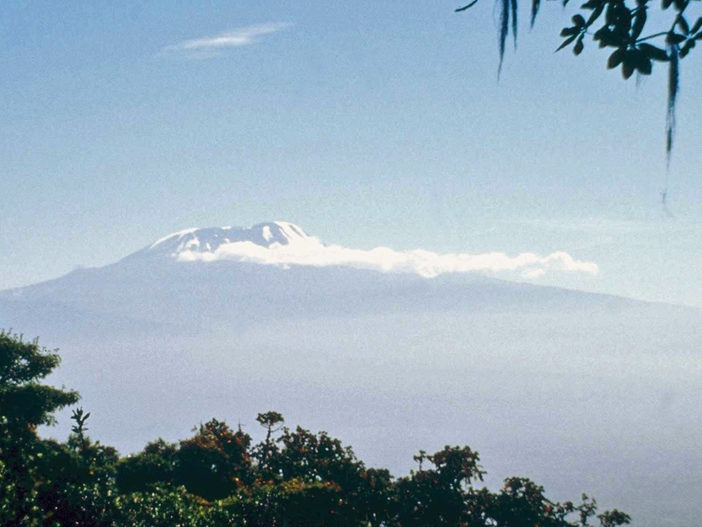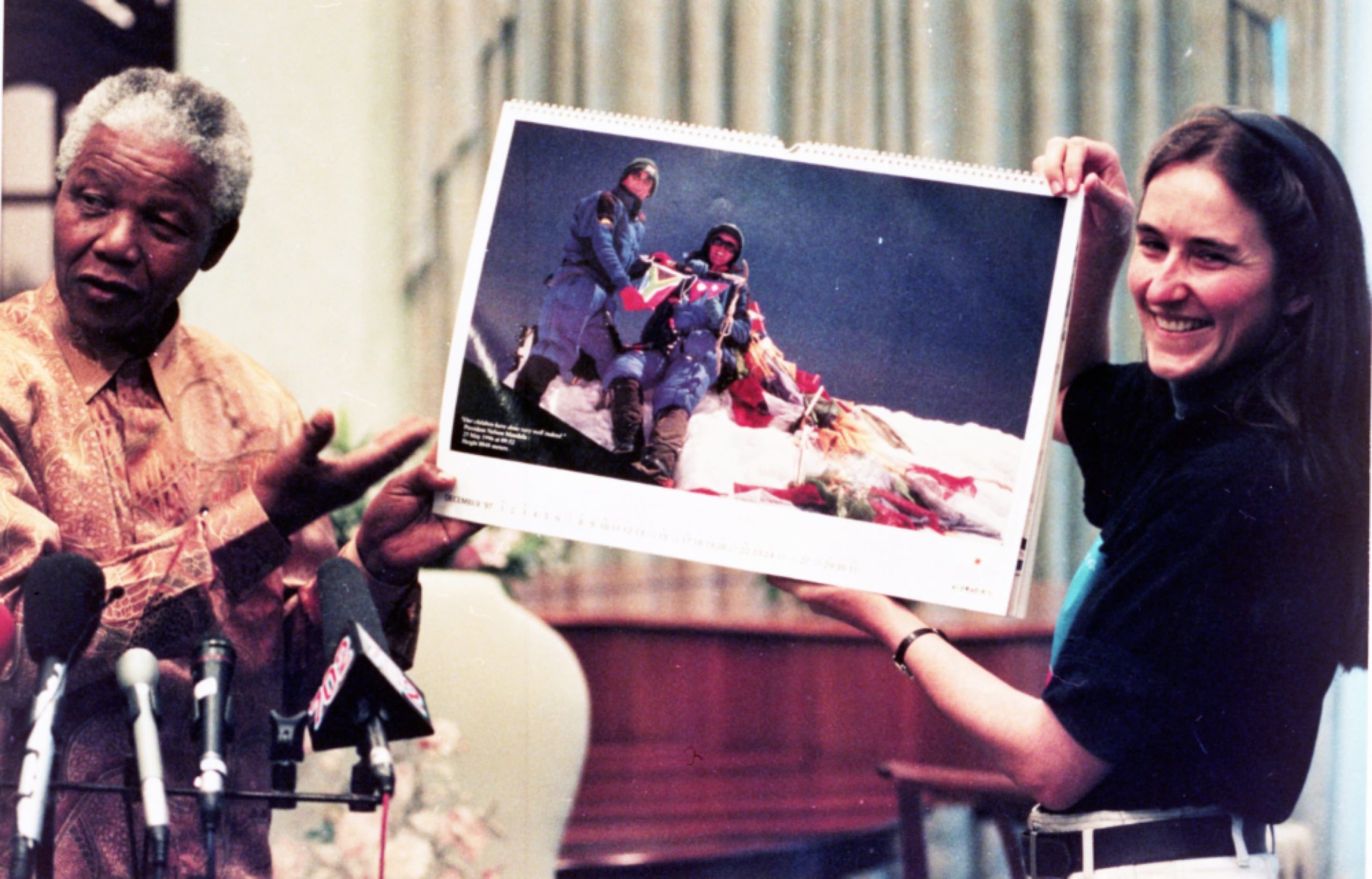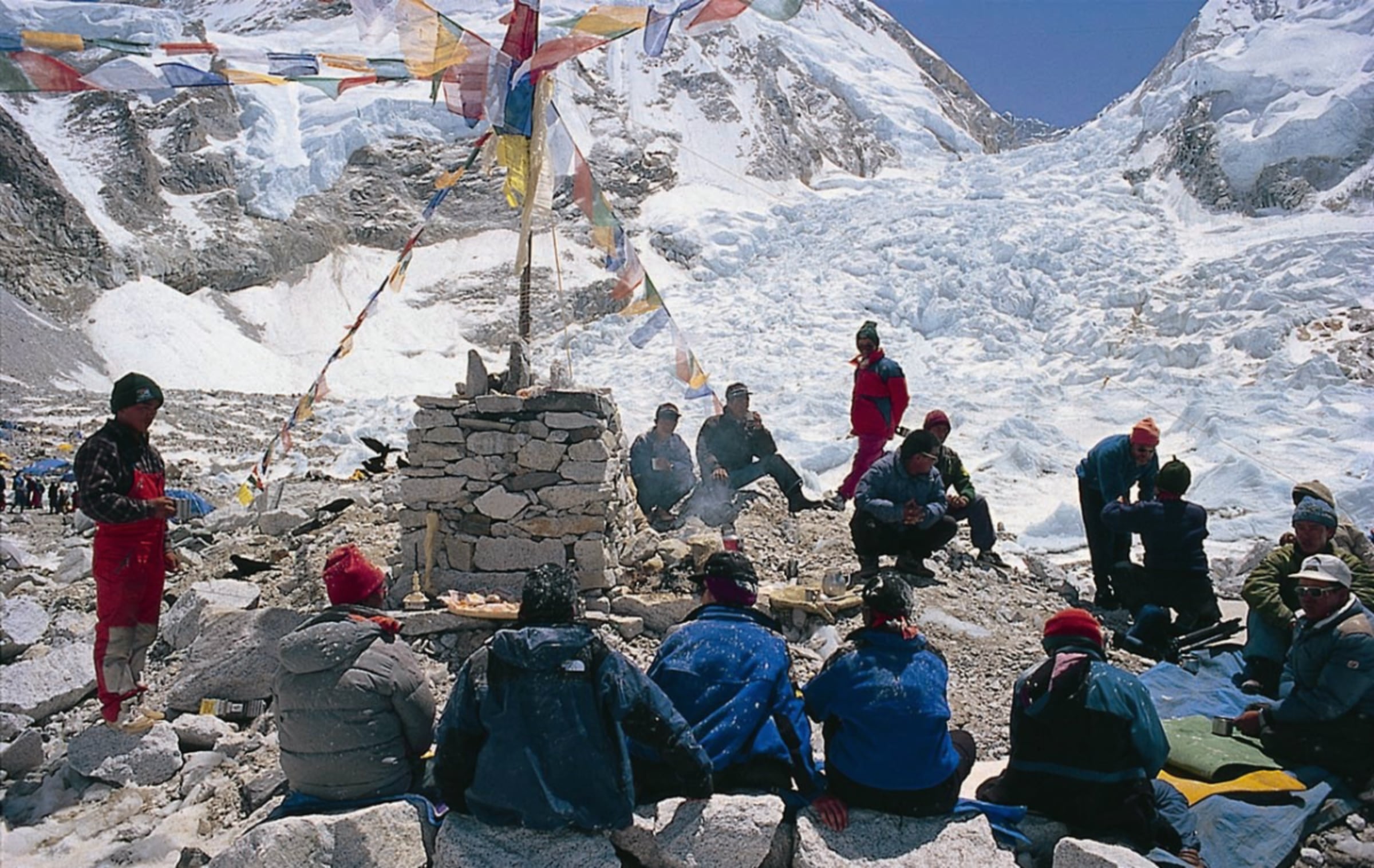The most famous storm in the history of Everest. Four teams sitting on the South Col, wondering whether to go for the summit in the morning, despite the marginal weather. Three teams went. We were the expedition that stayed behind.
The following is an extract of my book, Just for the love of it, which tells the story of my first three expeditions to Everest, of which the First South African Everest Expedition was the first.
Our small team was sitting on the South Col, at 8000 metres, having decided to wait 24 hours before trying to go to the summit. Three teams had summited that day, one of them a commercial team led by Rob Hall. Now they were trying to descend, in steadily worsening weather. Our base camp has just radioed us with bad news…
Just take some oxygen up to Rob Hall and Doug Hansen at the Hillary Step, said base camp.
Doug was one of Rob’s clients. The Hillary Step was at an altitude of 8 700 metres. The magnitude of this request was horrifying. The bad weather was intensifying, strong winds, extreme cold, snow, low visibility. We were at least eight hours climbing time from Rob, even in good conditions, and, having never been above the col before, would not be able to find the route in a storm.
The obvious question was why ask us? Of all the teams at or above 8 000 metres, we were the furthest away from Rob. The sad answer was that the base camp crews could not contact any of their own members, besides Rob. A second call from Philip, who was now at Rob’s base camp, told us that there were another 21 climbers missing.
I found it hard to comprehend the suddenness with which we had been plunged into disaster. What could be going on up the mountain with all those climbers? Experience was supposed to be your biggest asset. I knew the other teams doubted our chances because of our relative inexperience. When Rob had tried to ‘book’ 10 May for his summit, the official reason was to reduce congestion. I had heard the unofficial reason via the ever‑active climbing grapevine – he was saying he didn’t want the risk of having to waste time and resources rescuing incompetent climbers from other teams. There was a sickening irony in all this.
Ian made it clear to Philip that, although we could provide the muscle of a rescue, we could not route-find in a raging storm. We needed someone who knew which way the climbers were likely to be descending. It was thought that there might be some Sherpas at Rob’s camp 4 and we were asked to look for them.
‘Their tents are yellow,’ was the unhelpful direction.
A request to go outside that at base camp would have simply meant pulling on a down jacket and grabbing a torch for a few minutes’ walk took on a very different dimension at 8 000 metres in a howling storm. Ian battled through the awkward process of dressing, pulling on Goretex salopettes and jacket, hat, gloves, plastic boots. The inner boots were still damp from the previous day’s climbing and it was by now a very cold damp.
I was glad it was not me going out. The wind was strumming against the guy-ropes of the tent like fingers over guitar strings. The tent walls shook as if hit by a giant hand. The cold seemed to seep through the fabric. However, inside we were relatively warm, relatively safe. I wondered if I would go out if I had to. I quite frankly thought I would simply become just another victim of the storm’s ferocity within ten minutes. I hoped I wouldn’t have to make the choice.
I watched as Ian wriggled into the last layers of protective clothing and crawled out into the storm. All those layers that seemed so massive when we first sorted through them in the sunshine way down the trail now seemed so insubstantial in the face of the wind. The figure buried in all the layers of clothing seemed even more insubstantial.
We might be physically closest to the unfolding tragedy but in the face of the elements proximity meant very little. Bruce and I waited for Ian’s return, chattering inanely, anything to fill the silence of his absence.
Ian was finding moving through the storm a nightmare. The incredible force of the wind made it like trying to breathe out of the window of a speeding car. His face and eyes were scoured by the flying snow and ice particles. He held both hands up against his face and squinted through tiny gaps between his fingers. The tents had vanished in a pandemonium of noise and ice. The gusting, freezing winds were totally disorientating. Hands jammed under his armpits for warmth, hunched forward against the sting of the gale, he moved crab-like into the eye of the storm. He needed to stop every ten or fifteen steps to get his breath back, yet only moving kept warmth pumping through his body.
He stumbled across the first tent by accident, tripping over a frozen guy-rope. The tent side was vibrating like a drum from the force of the wind. Beating against the fabric made no impact. Shouted words were immediately torn away by the wind. With frozen fingers, Ian could not find the tent zips, let alone try to pull them open. He left the tent and moved on. Finally one tent opened, to reveal the face of Neil Laughton, a British climber on the Henry Todd team whom Ian had last seen over a cup of hot chocolate in base camp. Behind Neil was a pile of cold, tired, frightened Sherpas.
Neil joined Ian to continue the search. Ian recognised a boulder he had previously used as a reference point when moving from tent to tent. It seemed to be bigger somehow, and covered in snow. A figure sat motionless on the rock with his hands neatly folded on his lap and his chin resting on his chest. Neil recognised him as one of his team who had left camp 3 with Neil that afternoon. He had been so slow Neil had thought he had turned back. They dragged him back to Neil’s tent.
Ian was once again alone in the storm. Base camp had no more ideas. Rob’s Sherpas seemed to have vanished. Philip suggested Ian get himself back to our tents.
Ian returned, deathly pale under his sunburn, with icy cold feet. The risks of going out on any rescue attempt were huge – frostbite, hypothermia, disorientation, losing the tents, losing life. The concept of ‘calculated risk’ had just been catapulted into a new dimension. When does the time come to forget about other people and concentrate on saving yourself and your friends?






